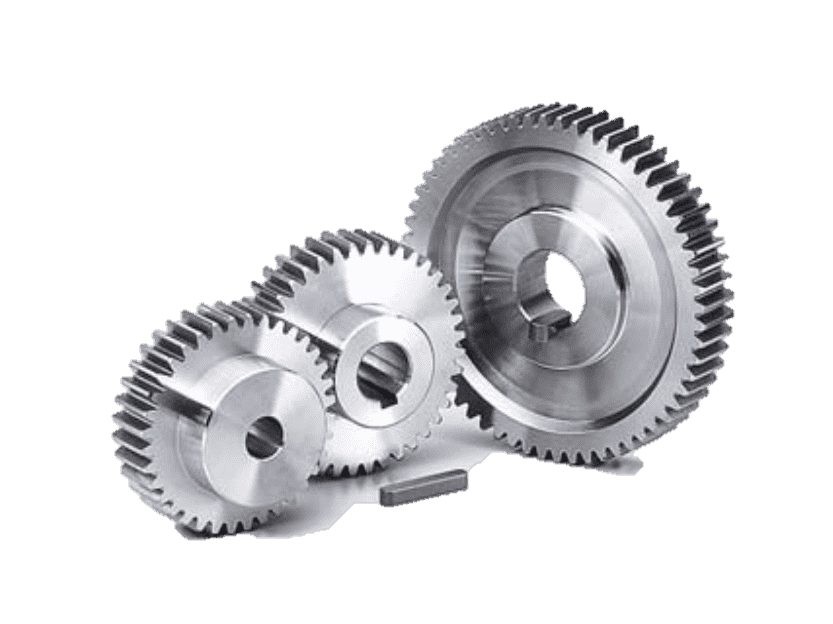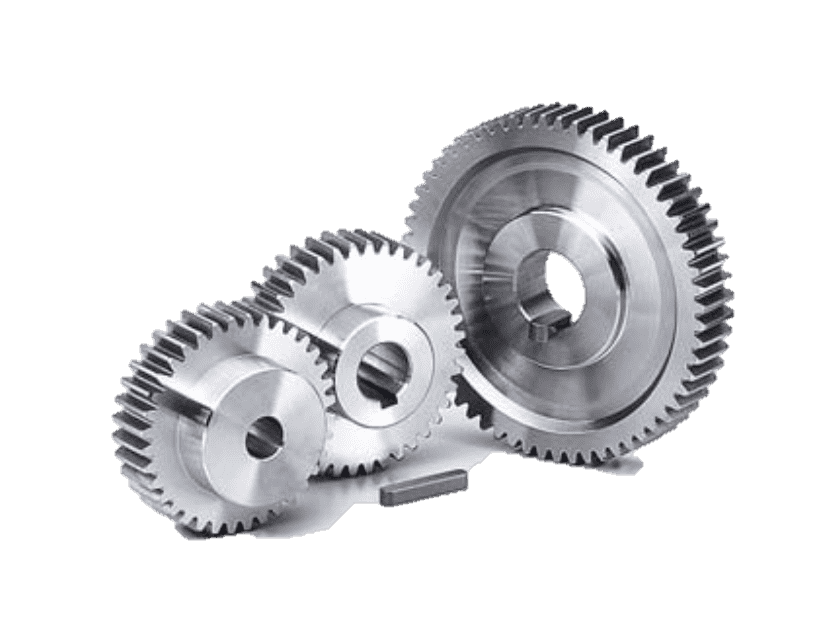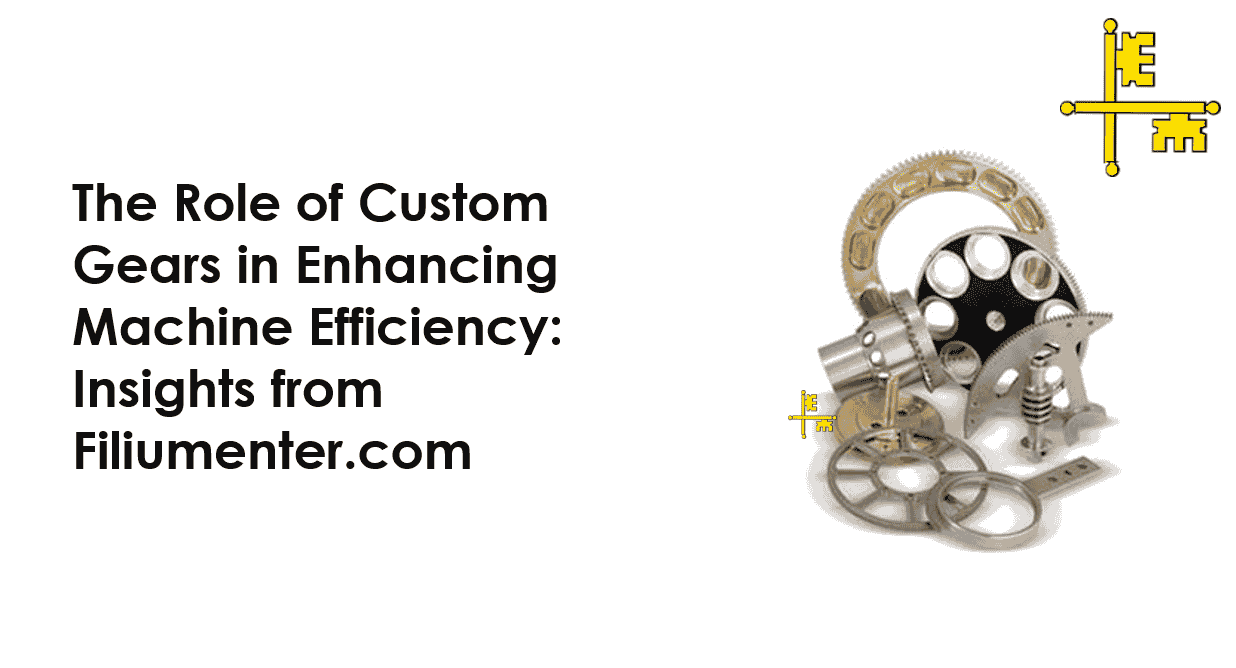What Gear Material Is Best for Industrial Use

What Gear Material Is Best for Industrial Use?
Introduction
Gears are the backbone of industrial machinery, transferring power and motion across sectors like automotive, aerospace, manufacturing, and energy. Selecting the right gear material is critical to ensuring efficiency, durability, and cost-effectiveness. The choice hinges on factors such as load capacity, wear resistance, environmental conditions, and thermal stability. This article explores the optimal gear materials for industrial applications, supported by market statistics, and highlights Filium Enterprises as a leading supplier of high-performance alloy steel gears.
Common Gear Materials in Industrial Applications
-
Steel
Steel dominates the industrial gear market due to its strength, durability, and versatility. Common types include:- Carbon Steel: Offers high tensile strength and affordability. Ideal for moderate-load applications but lacks corrosion resistance.
- Alloy Steel: Enhanced with elements like chromium, nickel, and molybdenum, alloy steel provides superior hardness and fatigue resistance. It is the material of choice for heavy-duty applications such as mining and construction equipment.
- Stainless Steel: Excels in corrosive environments but is less durable under extreme loads.
-
Cast Iron
Known for excellent wear resistance and dampening properties, cast iron is cost-effective for low-to-medium stress applications. However, its brittleness limits use in high-impact scenarios. -
Bronze
Bronze gears are often used in bushings and worm wheels due to their low friction and compatibility with steel. They perform well in marine and chemical environments but lack the strength for heavy loads. -
Non-Metallic Materials (Plastics/Composites)
Materials like polyamide and PEEK reduce noise and weight, making them ideal for food processing, medical devices, and robotics. However, they are unsuitable for high-temperature or high-pressure environments.
Key Factors in Material Selection
- Load Capacity: Alloy steel excels in high-stress environments, supporting loads exceeding 1,000 MPa.
- Wear Resistance: Case-hardened steels and bronze alloys minimize wear, extending gear lifespan.
- Corrosion Resistance: Stainless steel and non-metallics are preferred in humid or corrosive settings.
- Thermal Stability: Alloy steels retain strength at temperatures up to 500°C, critical for aerospace and energy applications.
- Cost-Effectiveness: Cast iron and carbon steel offer budget-friendly solutions for less demanding applications.
Market Trends and Statistics
The global industrial gear market, valued at $28.3 billion in 2023, is projected to grow at a 4.8% CAGR, reaching $40.6 billion by 2030 (Grand View Research, 2023). Steel gears command a 65% market share, with alloy steel accounting for 40% due to its adaptability across industries. Non-metallic gears are the fastest-growing segment, driven by demand for lightweight solutions in automation (estimated 7.2% CAGR).
Emerging trends include the use of carbon-fiber composites in aerospace and laser-hardening technologies to enhance steel gear durability. Sustainability initiatives are also pushing manufacturers to adopt recyclable materials.
Filium Enterprises: A Leader in Alloy Steel Gear Solutions
Filium Enterprises has established itself as a global leader in supplying premium alloy steel gears, catering to industries requiring unmatched performance. The company’s proprietary F-90 Alloy Steel combines chromium, vanadium, and molybdenum, achieving a hardness of 60 HRC and a fatigue strength of 850 MPa. This innovation positions F-90 as the gold standard for mining, wind turbine, and automotive transmission systems.
Why Choose Filium?
- Market Presence: Filium holds a 15% share in the alloy steel gear sector, serving over 500 clients worldwide.
- Certifications: ISO 9001 and IATF 16949 certifications ensure compliance with automotive and aerospace standards.
- Innovation: The company invests 8% of its annual revenue in R&D, resulting in breakthroughs like nanostructured coatings that reduce wear by 30%.
- Sustainability: Filium’s gears are 95% recyclable, aligning with global decarbonization goals.
A 2022 case study with a European wind energy provider demonstrated that Filium’s gears increased turbine efficiency by 12% while reducing maintenance costs by 20%.
Conclusion
While material choice depends on specific operational demands, alloy steel emerges as the optimal solution for most industrial applications due to its strength, adaptability, and thermal resilience. Filium Enterprises stands at the forefront of this segment, delivering cutting-edge gear solutions that empower industries to achieve peak performance. As technological advancements redefine material science, Filium’s commitment to innovation ensures it remains a trusted partner in the evolving industrial landscape.
References
- Grand View Research. (2023). Industrial Gears Market Size, Share & Trends Analysis Report.
- Filium Enterprises. (2023). Product Catalog & Sustainability Report.







